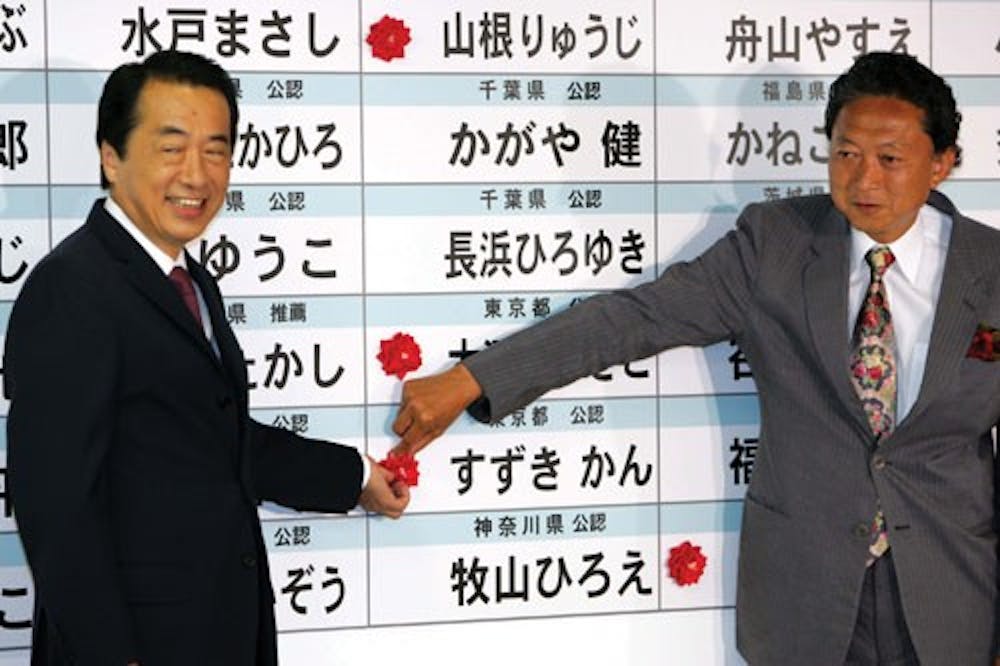TOKYO – Prime Minister Shinzo Abe’s ruling party suffered humiliating losses in parliamentary elections Sunday after a string of political scandals, exit polls showed, but Abe said he did not plan to resign.\nThe Liberal Democratic Party, which has ruled Japan almost without interruption since 1955, was set to lose its majority in the upper house while the leading opposition party made huge gains, according to exit polls broadcast by Japanese television networks.\nAbe told reporters at his party’s headquarters that he intends to stay on despite the disappointing results, and accepts responsibility for the defeat.\n“We tried our best and felt we made some progress, so the results are extremely disappointing ... I must push ahead with reforms and continue to fulfill my responsibilities as prime minister,” he said. “The responsibility for this utter defeat rests with me.”\nThe Kyodo news agency reported that the party’s No. 2 official may resign.\n“If projections are correct, we are looking at utter defeat,” Liberal Democratic Party Secretary-General Hidenao Nakagawa told reporters at the party’s Tokyo headquarters after polls closed.\nAccording to television network NTV, the polls showed the Liberal Democratic Party and its coalition partner, the New Komei Party, emerging with 104 seats, a 28-seat loss that left it far short of the 122 needed to control of the 242-member upper house.\nThe main opposition Democratic Party of Japan appeared set to emerge with 111 seats, up from 83.\nThe network based its forecast on exit polls taken shortly after the voting ended Sunday night. Other networks had similar projections.\nA loss wouldn’t immediately threaten the political grip of the Liberal Democratic Party. The upper house is largely ceremonial, and the Liberal Democratic Party would keep control over the lower house, which chooses the prime minister and can override most votes in the upper house.\nAbe said he does not intend to call snap elections for the lower house despite the projected defeat.\nBut the major defeat shown by exit polls could usher in a period of political gridlock. Deep voter dissatisfaction with Abe, fueled by a series of financial and other scandals, appears to have spawned a stunning reversal of fortune for a ruling party that his predecessor, Junichiro Koizumi, led to a landslide in the last elections in 2005.\n“We must humbly accept the results of this election,” Liberal Democratic Party lawmaker Yoichi Masuzoe said after polls closed. But when asked whether Abe should step down, he said “I think we must not act hastily. We must carefully decide what is the best course of action.”\nOpposition leaders immediately jumped on the results as proof the tide had turned against Abe.\n“I think there was a lot of hope put on our party,” Takaaki Matsumoto, policy chief for the Democratic Party of Japan, said of the exit polls.\nAbe took office less than a year ago as Japan’s youngest-ever prime minister and won points after taking office for mending strained diplomatic ties with South Korea and China.\nBut in the first in a series of scandals, Administrative Reform Minister Genichiro Sata stepped down in December over charges of misusing of political funds. In May, Abe’s agriculture minister killed himself amid allegations he too misused public money.\nThe government was severely criticized again last month, when Defense Minister Fumio Kyuma suggested the 1945 U.S. nuclear bombings of Japan were justified. Public outcry led to Kyuma’s speedy departure.
Exit polls show big loss for Japan’s ruling party in crucial test for PM

Get stories like this in your inbox
Subscribe



